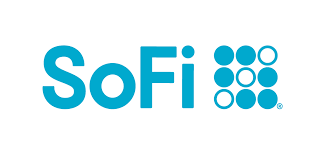Paying for college often means turning to private student loans — and many of those require a cosigner, especially if you don’t have an established credit history or steady income. A cosigner can help you qualify and even secure a lower interest rate. But not everyone has someone they can ask.
Ascent Funding offers students the flexibility to apply with or without a cosigner, depending on their financial or academic profile. But it also offers flexible repayment plans, generous loan limits and cash back perks.
Ascent® Funding
-
APR
3.09% to 15.61% APR with autopay discount (undergraduate new loan). Other rates and loan types are available. Visit Ascent’s website for full details.
-
Loan types
Undergraduate and graduate loans, MBA, medical school, dental school, law school, doctorate and Master’s, health professional loans.
-
Loan amounts
$2,001 up to $200,000 for undergraduate loans and $400,000 for graduate loans
-
Loan terms
5, 7, 10, 12, 15, 20 years
-
Borrower protections
Deferment and forbearance options available
-
Co-signer required?
For DACA recipients and non-U.S. citizens or permanent residents
-
Offer student loan refinancing?
Pros
- Considers borrowers with no credit
- High loan limit
- Co-signer release available after just 12 payments
- Up to 1% interest rate discount for autopay
- 1% cash back rewards
Cons
- Maximum fixed APR is on the high side
- Doesn’t offer student loan refinancing
What does Ascent Funding offer student loans for?
Ascent offers private student loans for students attending eligible undergraduate or graduate programs. If you’re a graduate student, you can also apply for a cosigned credit-based loan if you have a creditworthy cosigner, such as a parent, guardian or sponsor, or a non-cosigned credit-based loan if you meet certain credit and income requirements on your own.
If you’re enrolled in a specific type of graduate program, there are customized repayments terms available for:
- Business School (MBA)
- Dental School (DMD, DDS)
- Law School (JD, LLM)
- Medical School (MD, DO, DVM, VMD, DPM)
Ascent also offers parent student loans for parents, grandparents, guardians or sponsors who want to help cover education costs, though eligibility requirements apply, as well as bootcamp loans, which are consumer loans designed for career-focused bootcamps or accelerated-learning programs.
Pursue a college education with funding from these experienced lenders
Offers in this section are from affiliate partners and selected based on a combination of engagement, product relevance, compensation, and consistent availability.

Undergraduate and graduate students, parents, health professionals
$5,000 minimum (or up to state); maximum up to cost of attendance
5, 7, 10, 15, years; up to 20 years for refinancing loans
How to qualify for an Ascent Funding student loan
To qualify for an Ascent student loan, you must be enrolled at least half-time at an eligible institution. If you’re applying for a non-cosigned outcomes-based loan, you must be a junior or senior enrolled full-time, or half-time within nine months of graduation at an eligible school.
If you’re applying with a cosigner, your cosigner must have a minimum gross annual income of $24,000 for both the current and previous year. For the outcomes-based loan, you’ll need to maintain a minimum GPA of 3.0 and meet your school’s satisfactory academic progress standards.
Enrollment status
Borrowers must be at least half-time in a degree program at an eligible U.S. college or university
Credit requirements
Ascent doesn’t publicly disclose specific credit score requirements but approval depends on several factors, including:
- The type of loan
- Your credit history
- Whether you’re applying with a cosigner
You can use Ascent’s prequalification tool to get a better sense of which loan options you may be eligible for, without impacting your credit score.
Ascent Funding rates, terms and fees
The exact rates and terms of your Ascent loan may vary based on your credit and program.
Rates
Ascent offers fixed rates starting as low as 3.09% APR and variable rates starting at 4.31% APR.
Terms
Ascent offers loan terms of 5, 7, 10, 12, 15 or 20 years. There’s no prepayment penalty so you can pay off your loan early without added fees.
If you select a 20-year term, you’ll only be eligible for variable interest rates. And for loans with low balances, your minimum monthly payment account may shorten the total repayment period — meaning your loan may be paid off faster than the selected term.
Fees
Ascent does not charge any application, disbursement, prepayment or late fees.
Loan amounts
The minimum loan amount available to borrowers is $2,001, while in Massachusetts it’s $6,001. The maximum is $200,000 for undergraduate students, and $400,000 for graduate students.
Repayment options
Ascent offers a variety of repayment options based on your credit profile and whether you apply with or without a cosigner.
Interest-only: Pay only the interest while in school and during the grace period. Full payments begin after graduation.
$25 minimum: Make flat $25 monthly payments while in school. Full payments start after graduation.
Deferred: Make no payments while in school. Interest accrues and is added to the loan balance when repayment begins.
Ascent Funding benefits and features
Other than not always needing a cosigner, Ascent offers a range of perks.
1% cash back reward: You can get 1% of your original loan amount back when you graduate, as long as you meet certain eligibility requirements.
Up to 1% interest rate discount: You can sign up for automatic payments to receive an interest rate reduction (0.25% for autopay, with additional promotional offers sometimes available).
High loan limits: You can borrow up to $200,000 for undergraduate loans, and up to $400,000 for graduate loans.
Ascent Funding pros and cons
Ascent offers several advantages but there are some limitations to consider.
Pros
- No fees or penalties
- Offers both cosigned and non-cosigned loans
- Prequalification tool available
Cons
- Interest rates may be higher without a cosigner
- Not available to part-time students
- International students must apply with a qualified U.S. cosigner
Ascent Funding customer service
Ascent offers support via phone, email and live chat during business hours. It’s generally well-rated for ease of application but customer service experiences can vary.
How to apply for an Ascent Funding student loan
Applying for a student loan with Ascent is generally straightforward:
- Check your rate using the prequalification tool
- Choose your loan type (cosigned or non-cosigned)
- Complete the full application online
- Upload required documents (proof of income, ID, enrollment verification, etc.)
- Wait for credit review and approval
- E-sign your loan agreement
- School certifies your loan amount
- Funds are disbursed directly to your school
How Ascent Funding compares to other student loans
While Ascent offers flexible borrowing options, its interest rates can fall on the higher side, especially if you don’t qualify for discounts. If low rates are your priority, Earnest offers some of the lowest starting APRs among private lenders. It also lets you pick your exact repayment timeline and doesn’t charge late fees.
Earnest
-
Eligible borrowers
Undergraduate and graduate students, parents, half-time students, international and DACA students
-
Loan types
Undergraduate, graduate loans, parent loans, MBA, medical school, law school, international and DACA student loans
-
Loan amounts
$1,000 up to the cost of attendance for new loans, $5,000 to $550,000 for refinance loans
-
Loan terms
-
Borrower protections
Nine-month grace period available
-
Co-signer required?
-
Offer student loan refinancing?
Pros
- Nine-month grace period available
- No co-signer required
- 0.25% interest rate discount for autopay
- Qualified borrowers can skip one payment every 12 months
- Offers student loan refinancing
Cons
- No co-signer release option available
- Variable rates not available in all states
Actual rate and available repayment terms will vary based on your income. Fixed rates range from 4.24% APR to 10.74% APR (excludes 0.25% Auto Pay discount). Variable rates range from 6.13% APR to 10.74% APR (excludes 0.25% Auto Pay discount). Earnest variable interest rate student loan refinance loans are based on a publicly available index, the 30-day Average Secured Overnight Financing Rate (SOFR) published by the Federal Reserve Bank of New York. The variable rate is based on the rate published on the 25th day, or the next business day, of the preceding calendar month, rounded to the nearest hundredth of a percent. The rate will not increase more than once per month. The maximum rate for your loan is 8.95% if your loan term is 10 years or less. For loan terms of more than 10 years to 15 years, the interest rate will never exceed 9.95%. For loan terms over 15 years, the interest rate will never exceed 11.95%. Please note, we are not able to offer variable rate loans in AK, IL, MN, NH, OH, TN, and TX. Our lowest rates are only available for our most credit qualified borrowers and contain our .25% auto pay discount from a checking or savings account.
If you’re looking to refinance your student loans after graduation, SoFi is a top alternative. SoFi allows you to consolidate federal and private loans with no fees and potentially lower your interest rate, especially if your credit has improved or your income has increased.
SoFi Student Loans
-
APR
3.23% to 15.99% APR with 0.25% autopay discount (Undergraduate New Loan). Other rates and loan types are available. Visit SoFi’s website for full details.
-
Loan types
Undergraduate, graduate, parent loans, law school, MBA and health professions loans
-
Loan amounts
$5,000 (or state-mandated minimum) up to the cost of attendance
-
Loan terms
5, 7, 10, 15 years; refinancing loans up to 20 years
-
Co-signer required?
-
Offer student loan refinancing?
-
Offer parent loan?
Pros
- High loan amount
- No co-signer required
- 0.25% interest rate discount for autopay
- Offers student loan refinancing
Cons
- No co-signer release
- Minimum loan is on the high side
Fixed rates range from 3.23% APR to 15.99% APR with 0.25% autopay discount. Variable rates range from 4.39%APR to 15.99% APR with a 0.25% autopay discount. Unless required to be lower to comply with applicable law, Variable Interest rates are capped at 17.95%. SoFi rate ranges are current as of 7/10/2025 and are subject to change at any time.Your actual rate will be within the range of rates listed above and will depend on the term and type of repayment option you select, evaluation of your creditworthiness, income, presence of a co-signer (if applicable) and a variety of other factors. Lowest rates reserved for the most creditworthy borrowers.Check out our eligibility criteria at https://www.sofi.com/eligibility-criteria/. For the SoFi variable-rate product, the variable interest rate for a given month is derived by adding a margin to the 30-day average SOFR index, published two business days preceding such calendar month, rounded up to the nearest one hundredth of one percent (0.01% or 0.0001). APRs for variable-rate loans may increase after origination if the SOFR index increases. The SoFi 0.25% autopay interest rate reduction requires you to agree to make monthlyprincipal and interest payments by an automatic monthly deduction from a savings or checking account. This benefit will discontinue and be lost for periods in which you do not pay by automatic deduction from a savings or checking account. The benefit lowers your interest rate but does not change the amount of your monthly payment. This benefit is suspended during periods of deferment and forbearance. Autopay is not required to receive a loan from SoFi.SoFi Private Student loans are originated by SoFi Bank, N.A. Member FDIC. NMLS #696891 (www.nmlsconsumeraccess.org).
Subscribe to the CNBC Select Newsletter!
Money matters — so make the most of it. Get expert tips, strategies, news and everything else you need to maximize your money, right to your inbox. Sign up here.
Why trust CNBC Select?
At CNBC Select, our mission is to provide our readers with high-quality service journalism and comprehensive consumer advice so they can make informed decisions with their money. Every student loan review is based on rigorous reporting by our team of expert writers and editors with extensive knowledge of student loan products. While CNBC Select earns a commission from affiliate partners on many offers and links, we create all our content without input from our commercial team or any outside third parties, and we pride ourselves on our journalistic standards and ethics.
Catch up on CNBC Select’s in-depth coverage of credit cards, banking and money, and follow us on TikTok, Facebook, Instagram and Twitter to stay up to date.
Editorial Note: Opinions, analyses, reviews or recommendations expressed in this article are those of the Select editorial staff’s alone, and have not been reviewed, approved or otherwise endorsed by any third party.







